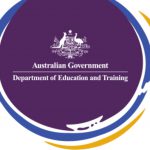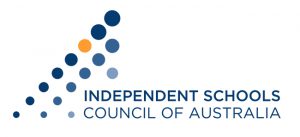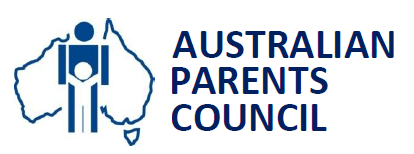How parents help their child do well at school
What the Australian Government says: Parent Engagement in Learning
Parent engagement in learning is known to lead to improved outcomes for students of all ages. Schools and teachers can support parent engagement by building partnerships to connect learning at home and school.
Parent engagement and involvement
The terms parent engagement and parent involvement describe how parents and families support their children's academic achievement and wellbeing. Parent involvement usually focuses on school-based activities such as attending events or volunteering in class.
Parent engagement encompasses children's learning at home, at school and in the community, recognising the cultural and social diversity of families and communities. There is strong evidence linking parent engagement with improvements in academic achievement for children of all ages.
The Family-School Partnerships Framework
The Family-School Partnerships Framework was developed to promote and guide partnership building. The Framework was developed by the Australian Parents Council, the Australian Council of State School Organisations and the Australian Government, and endorsed by Australia’s Education Ministers in 2008.
The core principles of effective family-school partnerships are:
- parents and families are the first and continuing educators of their children
- learning is lifelong and occurs in multiple settings
- partnerships, schools and school communities flourish when the diversity and strengths of families are valued and leveraged
- community engagement expands responsibility and resources
- partnerships grow from mutual trust, respect and responsibility
- partnerships need committed, collaborative and creative leadership.
'Family-school and community partnerships are an effective way to support and empower positive parent engagement, and bring together family and community resources to enrich student learning and wellbeing.'
The Framework is for use by school leaders, teachers and school teams to support partnerships between schools and families. There is a series of materials below to support the Framework, offering research insights, practical advice and a range of resources.
These materials were developed by the Family-School and Community Partnerships Bureau. The Bureau was jointly governed by the Australian Parents Council and Australian Council of State School Organisations from 2008 – 2017, with support from the Australian Government.

Advice and information for parents
Learning Potential
Learning Potential is a Department of Education, Skills and Employment website and app aimed at encouraging parents to engage with their child's learning at home. It is full of information linked directly to the curriculum at all stages of education.
Australian Curriculum, Assessment and Reporting Authority (ACARA) parent information
Information for parents and carers linked to the curriculum is available from ACARA.
Raising children.net.au
This government backed website covers a wide range of parenting issues, including learning from babies through to adulthood.
It includes advice on everything from reading and story telling with very young children to a whole section on school and learning for parents with older children.
Gearing up for parent engagement in student learning
Parents’ engagement with their school
 The Independent Schools Council of Australia website has advice for parents on effective parent/carer’s relationship with a school. 'Good communication between parent/carers and the school is vital to ensure that a strong partnership is maintained.
The Independent Schools Council of Australia website has advice for parents on effective parent/carer’s relationship with a school. 'Good communication between parent/carers and the school is vital to ensure that a strong partnership is maintained.
In most circumstances, if issues arise parents are encouraged to discuss them directly with their child’s teacher. If an issue cannot be dealt with at the class level then parents may choose to make an appointment to discuss it with a school leader.'
Navigating high school parent-teacher interviews
A great guide for parents (and teachers) published by ABC Life.
Growing and sustaining parent engagement: a toolkit for parents and community partners
This toolkit features parent engagement approaches and strategies used by parents and partners involved with First 5 LA’s Partnerships For Families initiative.
Interesting articles about the important role of parents
So what can we do differently? We can engage parents — in ways that enable students to do better, like school more and stay in school longer.
Five decades of research evidence attest to the benefit of parent engagement. The educational and moral imperative is clear: to shift the existing student achievement trajectory, educators must intentionally and systematically use parents’ untapped knowledge to enhance student learning.
'Parents and teachers: Working together to foster children’s learning'
This edition of the Research Digest focuses primarily on parent-teacher collaboration, considering what research can tell us about:
- why parental engagement is important
- key features of effective collaborations
- critical challenges and issues that teachers and parents may face
- strategies that have helped teachers and parents build effective relationships.
'Nurturing good parent-teacher relationships important for children's development: expert'
This article looks at why parents and teachers need to get along in the best interests of children and 'the widening gulf between parents, teachers and the school system, which is at breaking point, and the urgent need for policies to be put in place to prevent irreparable damage to the sector – not least children’s learning outcomes.....'
'Parents and schools working together - Better'
APC recently wrote an open letter with other parent organisations - ACSSO and CSPA - calling for greater focus on parent engagement in schools and active policies to strengthen home-school relationships in the interest of children.
'How can parents support their children's learning?'
'As a parent it can feel like an endless struggle to ensure homework and assignments are completed and handed in on time. Why isn’t my child excited and motivated by the tasks set to work on at home? Why does everything feel like it’s been left to the last minute?'
'Evidence-informed parental engagement'
'How can schools best work with parents, carers, grandparents and older siblings to support students and improve their learning? Dr Tanya Vaughan and Susannah Schoeffel explore two evidence-based recommendations from a new guidance report for Australian practitioners, and share practical examples of action.'




